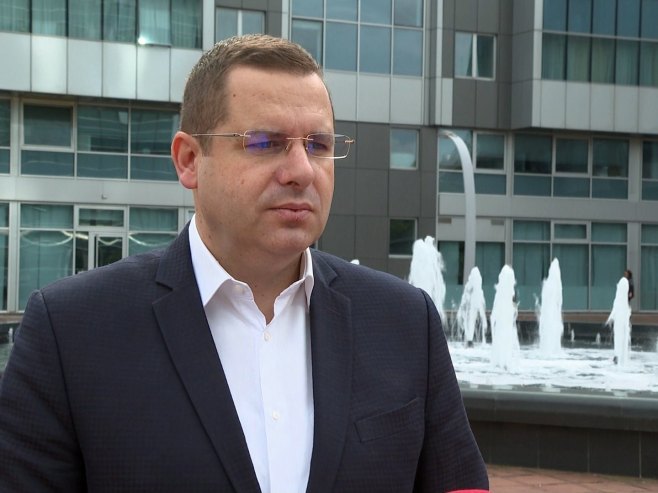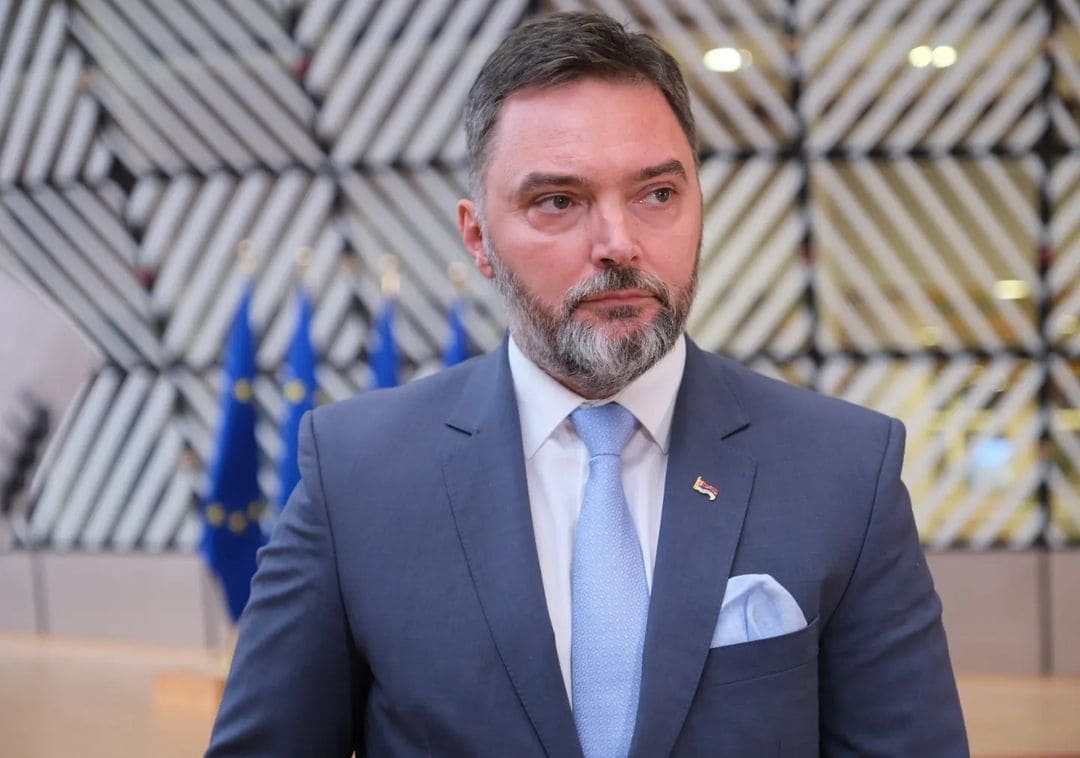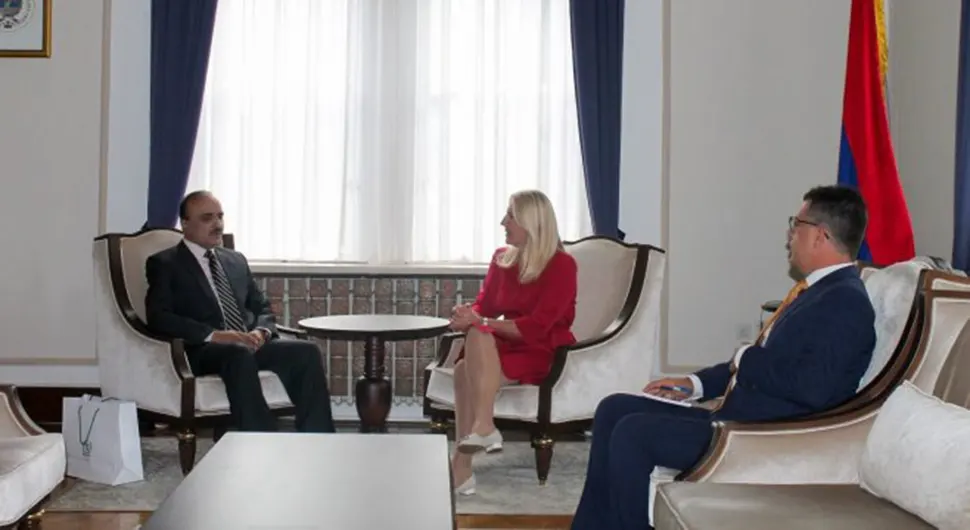In recent months, memories of 1991 have been intensifying for me, particularly the manipulative “bravado” of the political wing of the pan-Islamist structures of the Muslim Brotherhood in Bosnia and Herzegovina—namely, the SDA—and its political leader and member of the supreme council, Alija Izetbegović. Together with these Islamist structures and his Euro-Atlantic globalist partners, he orchestrated the “Bosniak” project—a project of creating a Bosniak nation, which in essence is pan-Islamist, infused with historical remnants of Austro-Hungarian, NDH, and German Nazi propaganda narratives, and serves as a tool for the aforementioned Euro-Atlantic globalist agendas in the region.
The character and nature of these pan-Islamist structures in Bosnia and Herzegovina are best illustrated by the fate of Serb citizens in the Muslim-controlled part of Sarajevo. In this part of the city, there were over 211 detention centers, prisons, and camps for Serb Christians. Thousands of people were unlawfully detained, forcibly removed from their homes, subjected to brutal and unimaginable terror, mass rapes, and executions. The historical Serb Christian community in the Muslim-controlled part of Sarajevo was effectively decimated and destroyed.
What comes to my mind most frequently is the atmosphere among Serbs when these ideological and political structures annulled the Constitution of the Socialist Republic of Bosnia and Herzegovina on October 14-15, 1991, and fraudulently, without the presence of Serb representatives, adopted the Memorandum on the Sovereignty of Bosnia and Herzegovina. The Serb people in the Socialist Republic of Bosnia and Herzegovina wanted to remain in Yugoslavia, partly due to the historical experience of genocide against Serbs in the NDH. This sentiment was later explicitly reflected in all founding documents of the newly established Republika Srpska. The concern and anxiety that gripped the Serb people on October 15 and in the days that followed are difficult to erase from memory.
These recollections of that time particularly come to mind in the context of the judicial process before the Court of Bosnia and Herzegovina, which is being conducted against the Serb constituent people and Republika Srpska as its protector. Despite the unprecedented global events unfolding daily, what is currently happening here is of immeasurable significance. I will attempt to lay bare the entire situation, deliberately avoiding mentioning any names, hoping that this will help certain overly self-assured individuals, from various backgrounds and perspectives, to confront the facts that I have been compelled to communicate in recent months and years.

Republika Srpska today faces the most serious challenge since 1995. The Court of Bosnia and Herzegovina has initiated proceedings against the institutions of Republika Srpska, particularly against the President of Republika Srpska, not because of any violation of the law, but because he acted in accordance with the Constitution of Republika Srpska and his constitutional and international legal obligations. This process is not merely legal but deeply political and strategically aimed at abolishing the constitutional competences of Republika Srpska through judicial repression and transforming Bosnia and Herzegovina into a centralized state, contrary to the Dayton Peace Agreement, its annexes, and international law.
We are witnessing an attempt to render Republika Srpska legally and politically meaningless through illegally imposed laws at the state level of Bosnia and Herzegovina, effectively reducing the Serb constituent people in Bosnia and Herzegovina to a minority deprived of political decision-making rights. This is not merely about a single court case—it is about the future of Republika Srpska and the status of the Serb constituent people within Dayton Bosnia and Herzegovina.
I feel compelled to call upon the citizens of Republika Srpska, the academic community, professors, students, legal experts, political parties, and all institutions to not remain indifferent or passive. This is a moment to defend what was established in the autumn of 1991 and January 1992, bloodily defended from 1992 to 1995, and negotiated and secured in Dayton in 1995.
The judicial process before the Court of Bosnia and Herzegovina against the institutions of Republika Srpska and its President represents an attempt to:
- Impose the laws of Bosnia and Herzegovina above the Constitution of Republika Srpska, thereby stripping Republika Srpska of its constitutional competences guaranteed by Annex 4, which holds the status of an international treaty with the function of the Constitution of Bosnia and Herzegovina.
- Criminalize the constitutional duty of the President of Republika Srpska, who is obligated to implement decisions of the National Assembly of Republika Srpska.
- Set a precedent allowing the Court of Bosnia and Herzegovina to assume legal control over the institutions of Republika Srpska, meaning that all decisions made by Republika Srpska’s authorities, including the National Assembly, could in the future be challenged and annulled before the Court in Sarajevo.
- Gradually abolish the constitutional and political status of Republika Srpska, thereby depriving the Serb constituent people in Bosnia and Herzegovina of mechanisms to protect their collective rights.

This process directly contradicts the Dayton Peace Agreement, which ended the war in Bosnia and Herzegovina in 1995 and established Bosnia and Herzegovina as a complex state community of two entities and three constituent peoples within a consociational model of democracy.
If the Court of Bosnia and Herzegovina issues a ruling that affirms the application of imposed Bosnian laws over the institutions of Republika Srpska, the consequences will be far-reaching and dramatic. Article I, Paragraph 3 of Annex 4, which has international legal status and functions as the Constitution of Bosnia and Herzegovina, explicitly states:
“Bosnia and Herzegovina consists of two entities, Republika Srpska and the Federation of Bosnia and Herzegovina.”
If the Court of Bosnia and Herzegovina effectively rules that state laws override the Constitution of Republika Srpska, this would mean that this constitutional principle no longer applies, and Republika Srpska would lose its constitutional autonomy.
At the same time, if this ruling effectively centralizes Bosnia and Herzegovina’s legal system, it would mean that this article of the international treaty—Annex 4 (the Constitution of Bosnia and Herzegovina)—is de facto nullified, and Republika Srpska loses its legislative and executive competences. Furthermore, this international treaty, with the function of Bosnia and Herzegovina’s Constitution, guarantees the constituent status of all peoples in Bosnia and Herzegovina. However, if Republika Srpska’s institutions lose their competences, the Serb constituent people in Bosnia and Herzegovina will be left without real political power, as all key processes would fall under the control of centralized institutions in Sarajevo.
Given these facts about the character and consequences of this project, which continues the agendas of the ideological and political heirs of Alija Izetbegović’s pan-Islamist structures at any cost, it is evident that Republika Srpska must act immediately and take all possible concrete steps to protect the Serb constituent people and all its citizens. Regardless of the ruling in this case, all available democratic measures and activities must be initiated immediately.
“If one party to a treaty grossly violates its provisions, the other party has the right to suspend its implementation or withdraw from the treaty entirely.”
Article 60 of the Vienna Convention on the Law of Treaties provides guidance on possible actions in this situation. Republika Srpska has all the arguments and mechanisms for protection based on international law, the Dayton Peace Agreement, and all its annexes as binding components of international law. For those who wish to learn more about it in detail, the Center published a publication titled Challenges of Serb Public Policy at the end of last year.
This judicial process and ruling are not just about one case but a turning point for Republika Srpska. If this process and ruling nullify the Dayton Peace Agreement and the Constitution of Republika Srpska, it will mean that Republika Srpska is no longer a political entity but an administrative unit under the control of centralized institutions in Sarajevo.
The citizens of Republika Srpska must decide whether they accept the violation of the Dayton Peace Agreement and the centralization of Bosnia and Herzegovina—including a referendum if necessary. This is the moment for citizens, the academic community, professors, students, legal experts, and political parties to take a clear stand and defend Republika Srpska and the Serb constituent people.
Author: Dušan Pavlović, Director of the Center for Socio-Political Research of the Republic of Srpska
Source: CDPIRS








